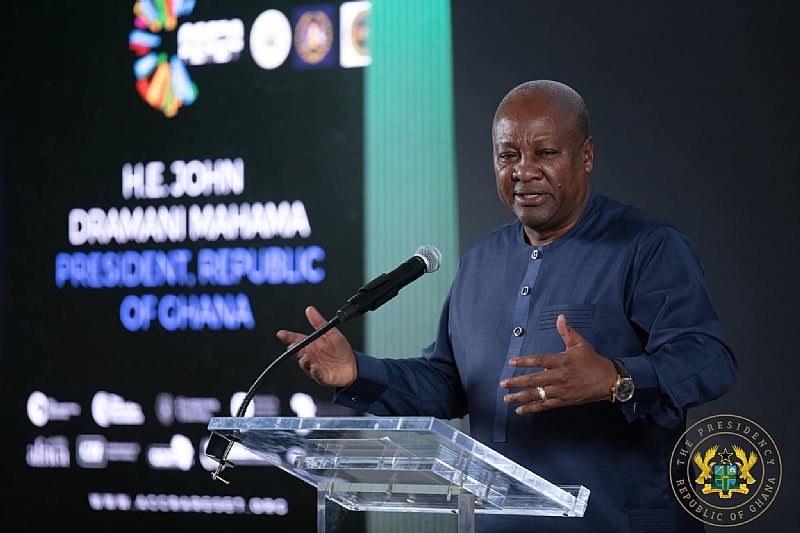President John Dramani Mahama, in his capacity as the African Union Champion for African Financial Institutions, has introduced a transformative initiative known as “The Accra Reset: Reimagining Global Governance for Health and Development.” Launched during the 80th United Nations General Assembly, this initiative aims to fundamentally reshape global governance structures to effectively address the complex challenges of a post-Sustainable Development Goals (SDG) world. Mahama’s dual role as advocate for reparations and financial reform underscores his commitment to this reset, recognizing the inherent flaws in the current global order and the urgent need for a more just and equitable system. The core premise of the Accra Reset stems from the understanding that current global development models are inadequate to address the interconnected crises of health, economics, and social inequality. The initiative calls for a fundamental shift in mindset, focus, and approach to global cooperation.
The Accra Reset builds upon the outcomes of the Accra Summit, which highlighted the interconnected nature of health crises with broader socio-economic inequalities and systemic flaws in the global development architecture. The summit emphasized that effective solutions lie not solely within the realm of healthcare but require a comprehensive overhaul of development paradigms. President Mahama underscored the urgency of this reset by pointing to failing aid systems, crippling debt burdens in the Global South, and increasingly fragile supply chains as clear indicators of a broken system. He stressed the need to move beyond simply treating the symptoms of global crises and instead address the root causes embedded within the current development framework. The Accra Reset serves as a clarion call for a paradigm shift, recognizing that healing global health systems requires a concurrent reset of development itself.
While acknowledging the significant progress made in poverty reduction, life expectancy, and maternal mortality over the past few decades, President Mahama cautioned against complacency. He noted that gains achieved over years can be swiftly eroded by unforeseen crises like COVID-19, which erased two decades of poverty reduction in a mere two years. Climate change further exacerbates these challenges, pushing millions into chronic hunger. These interconnected crises underscore the fragility of progress within the existing global framework and reinforce the need for a more resilient and adaptable system. The success of initiatives like the Global Fund and Gavi demonstrates the potential of global solidarity, but the widening cracks in the system necessitate a more robust and future-proof approach.
The core of the Accra Reset rests on three fundamental shifts: a shift in mindset towards embracing global unpredictability, a shift in focus from formulating new goals to building practical and executable business models, and a shift in recognizing the inevitability of conflicting interests as drivers of cooperation rather than obstacles. This new paradigm calls for resource multiplication instead of rationing, prioritizing resilience over limitations, and measuring the added value of health, climate resilience, and food security to the global economy. It moves beyond setting abstract targets and embraces a more pragmatic approach focused on tangible outcomes and measurable impact.
The operationalization of the Accra Reset envisions the formation of a new global coalition – a “partnership of the willing” – composed of a presidential council of leaders from diverse regions, including Africa, Asia, Latin America, and beyond. This council would provide the necessary political leadership and impetus for the initiative. Complementing the political leadership, a high-level panel of experts from various fields like health, finance, innovation, and business would provide the intellectual depth and strategic guidance. This collaborative approach aims to harness the collective wisdom and resources of diverse stakeholders to achieve a common goal.
This combined force of political will and expert knowledge is crucial for rethinking development from the ground up. The coalition would facilitate pragmatic cooperation, foster mutual investment, and create a pathway towards a more just and sustainable global future. The Accra Reset emphasizes the interconnectedness of global challenges and champions a collaborative approach to finding solutions. It represents a bold vision for reimagining global governance and building a more resilient and equitable world. By prioritizing resource multiplication, embracing unpredictability, and fostering cooperation amidst conflicting interests, the Accra Reset lays the foundation for a transformative shift in global development, moving beyond aspirational goals towards concrete action and measurable impact.


